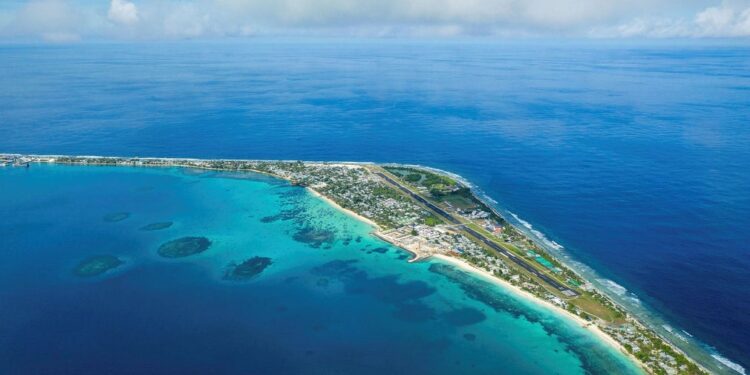The tiny Pacific island nation of Tuvalu is slowly disappearing beneath rising seas, turning a once-theoretical warning about climate change into a devastating lived reality. With its highest point just 4.6 metres above sea level, Tuvalu has become a stark symbol of what’s at stake for low-lying nations in the face of global inaction. Saltwater intrusion, eroding coastlines, and increasingly frequent storm surges now threaten to render the country uninhabitable within decades.
An existential crisis for a nation of 11,000
Tuvalu, made up of nine coral atolls and reef islands, is home to around 11,000 people who have seen their land shrink year by year. Crops are failing due to saltwater contamination of freshwater lenses, and traditional fishing zones have become unreliable. Schools and hospitals along the coast face constant flooding. Entire communities have been forced inland, though options for relocation are scarce given the country’s small land area and limited elevation.
Diplomatic battle for survival
Prime Minister Kausea Natano has led global efforts to keep Tuvalu on the international agenda, delivering impassioned speeches at UN climate summits and calling for binding action from major polluters. The country has signed landmark digital sovereignty agreements with nations like Australia and New Zealand to preserve its legal status and cultural identity—even if its physical territory becomes submerged. Tuvalu is also digitising its government archives and considering virtual embassies as part of a pioneering “digital nation” strategy.
Climate finance and broken promises
Despite widespread international sympathy, tangible assistance has been slow. Billions in climate finance promised by wealthier nations have either been delayed or misallocated, and adaptation projects have failed to meet the scale of the crisis. Sea walls have provided some temporary protection but have proven insufficient against worsening weather patterns. Many Tuvaluans now face the grim choice between staying and risking displacement, or leaving and becoming climate migrants with uncertain legal status.
Loss beyond land: culture and identity at risk
The stakes are not just territorial but cultural. Tuvaluan language, customs, and oral histories are intimately tied to the land and sea. Elders warn that with relocation, traditional ways of life may be lost forever. Church leaders, teachers, and local chiefs are working to preserve knowledge through storytelling and education, but the sense of impending loss hangs heavy. Young people are increasingly migrating, leading to fears of cultural fragmentation.
REFH – Newshub, 2 August 2025


Recent Comments